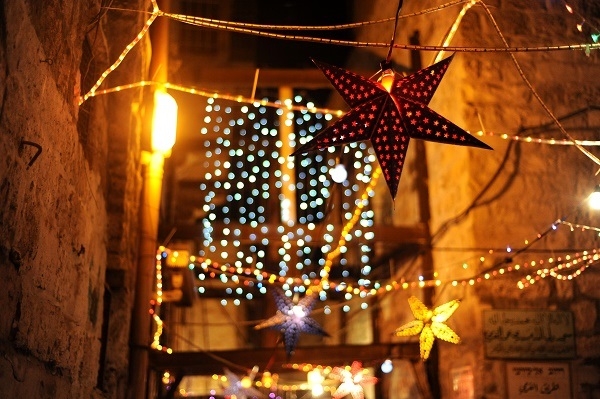
10 Things You Didn’t Know About Ramadan
- By C Barnett --
- 02 Jun 2016 --
![By Guillaume Paumier (Own work) [CC BY 3.0], via Wikimedia Commons](http://www.worldreligionnews.com/wp-content/uploads/2016/05/Ramadan3.jpg)
Ramadan: How much do you know about the Muslim holiday?
To non-Muslims, they know the holy month of Ramadan as a time that Muslims around the world are required to fast for 30 days, but that’s not the only unique thing about the month. Here are 10 things you might not know about Ramadan.
10 Things You Didn’t Know About Ramadan[/tweetthis]
During Ramadan, the Quran does not only prohibit Muslims from eating, but also from drinking any liquid during the daytime. Additionally, Muslims are encouraged to abstain from sex and vices like smoking and drinking. Not all Muslims are mandated to fast. Young children, individuals who are sick, disabled, or mentally ill and those traveling long distances are also not compelled to fast. Women who are pregnant, nursing, or menstruating are also excused.
Depending on which part of the world a Muslim lives in, their fast could be as long as 21 hours as in Iceland, or as short at 9 hours, as in Chile, since sunlight is determined by a location’s position on the globe. There have been discussions that due to these extreme differences, Muslims should fast according to the duration of the fast at Mecca.
Aside from abstaining from food and bodily pleasures, the Quran also mandates Muslims to help the poor, especially during Ramadan. Most individuals give donations (zakat) to the poor. Mosques and the wealthy often do charity events like mass feeding or gift giving during the celebration.
Sunni Muslims break their fasting immediately after the sun is no longer visible in the horizon or when the maghrib prayer starts. On the other hand, Shi’ite Muslims wait longer until the rays or luminance of the sun totally disappears from the sky.
Unlike many other celebrations that have specific dates on the calendar, the annual start of Ramadan is constantly moving. It’s because the celebration is based on Islam’s lunar calendar and Muslims have to wait for the new moon of the ninth month of the year.
Ramadan is comparable to the Christmas and New Year holidays when it’s all about shopping, especially for luxury items. In the evening when the fast has finally been broken, restaurants, fast food chains and other food establishments are packed with people because of their various promotions. It’s a good time for T.V. and media also. In-program and advertisement sales are at their highest during this period.
Ramadan has always been used by politicians, dictators and other Muslim leaders to advance their political or even personal objectives. Ramadan has been used by certain politicians to show their “good and caring” side, to end wars, or temporarily cease conflicts, etc.
Even before the Islamic religion was established, the concept of fasting has already been popular and is practiced by people from all other races and religions. The only difference is that fasting in its general sense will require a person not to eat or drink until he or she decides to stop, while in Ramadan, Muslims are prevented from eating only during the day.
The majority of Muslims don’t immediately consume heavy and lavish feast after they break the fast. Most prefer to transition with dates first, coupled by a juice or “jallab.”
If you think that Muslims should lose weight after Ramadan because of the prolonged fasting, you are wrong. Surprisingly, the opposite happens. It’s because in the evening, Muslims tend to consume food heavily, particularly carbohydrates, in preparation for the next fasting day. Additionally, physical activities during the day are greatly reduced so the excessive foods consumed last night are not totally burned.
7 days left until ramadan. InshaAllah next week on Monday, we will be started to fasting. Aminn ☺️
— Muhammad HafizRayyan (@HafizRayyan) May 30, 2016



















